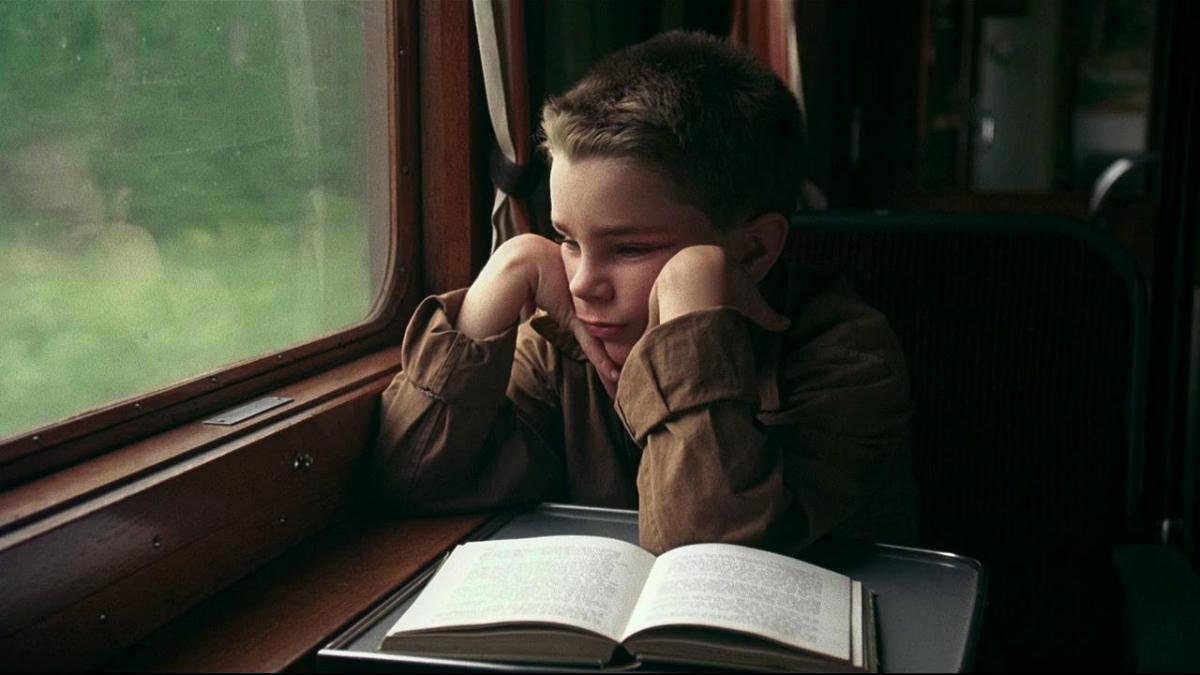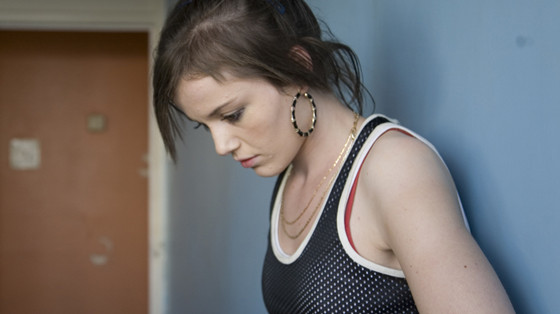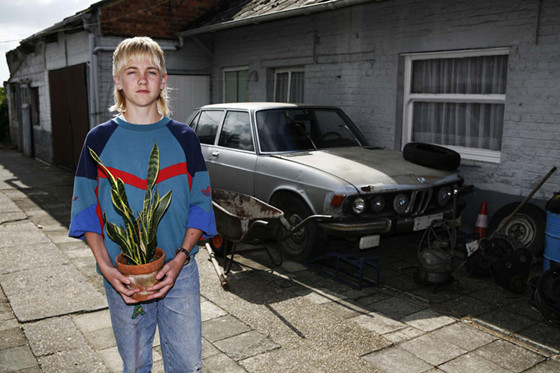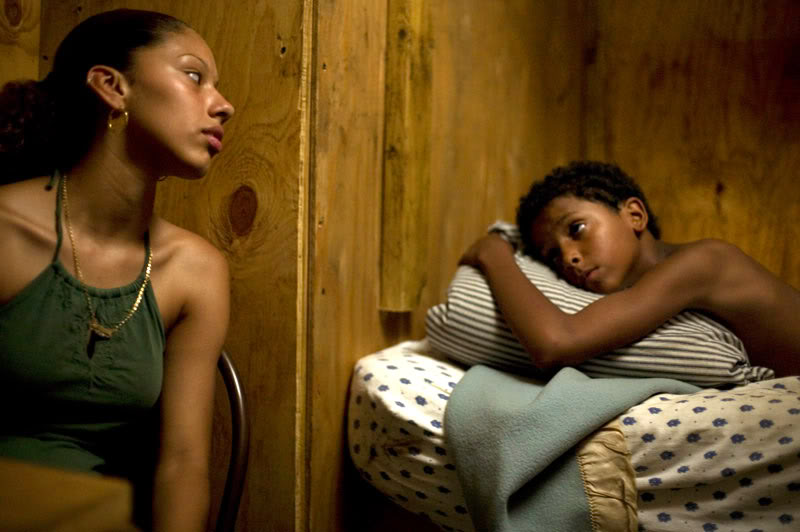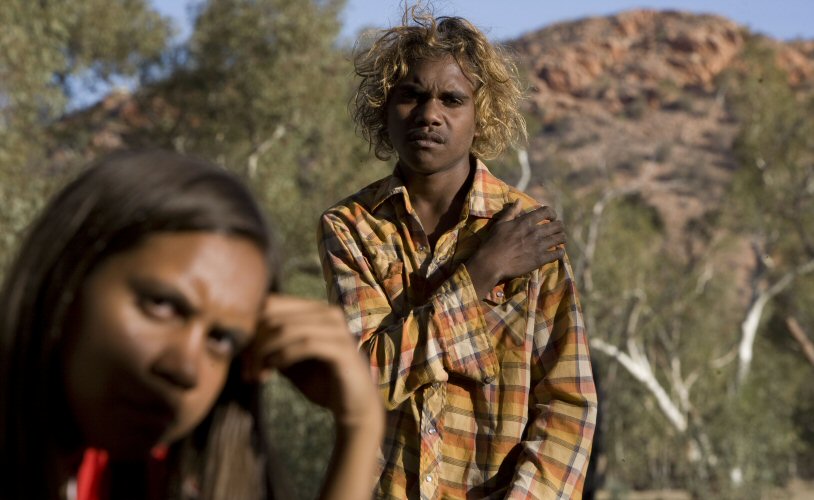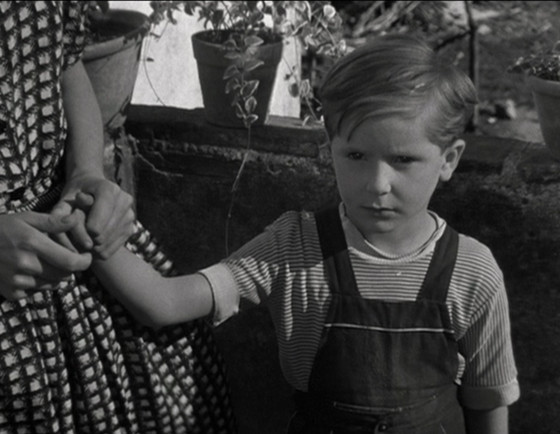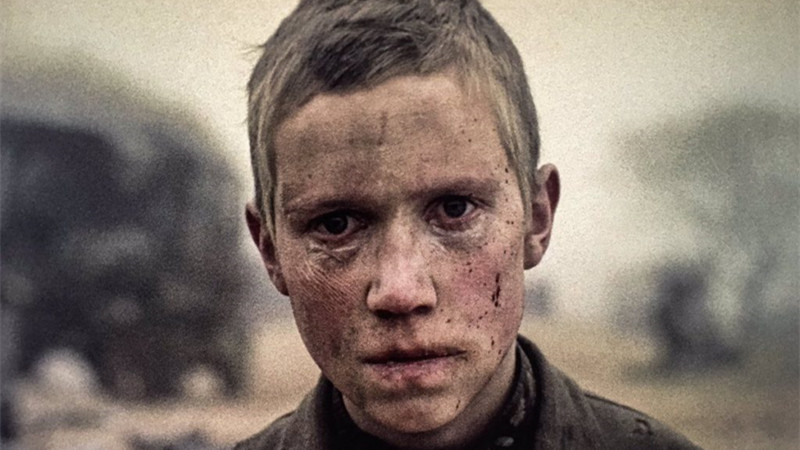
There is no way that this list will be complete. Quite frankly, there are many, many great films that have been made about troubled childhoods and as a result plenty of good films dealing with the topic have not been included.
Some of the movies that came to mind but were not included are Slumdog Millionaire, Precious (the lead character just seemed a little too old and mature to be included) and maybe most noteworthy Bicycle Thieves (as two other Vittorio De Sica films, which focus more exclusively on the children than Bicycle Thieves, a film that is as much about the father as it is about the child, did make the cut).
But one thing is for sure: with the twenty films listed here, you can’t really go wrong. All of them are great and some of them are certified masterpieces of world cinema. We tried to make the selection rather eclectic, choosing films from a variety of nations and eras. Hopefully you’ll find a good suggestion or two.
20. My Life as a Dog (Lasse Hallström, 1985)
Based on the autobiographical novel of the same name by Reidar Jönsson, My Life as a Dog was the international breakthrough for Swedish director Lasse Hallström, who would soon after make the move to the United States and start directing films in Hollywood.
Set in 1959 in Sweden, the film follows Ingemar (Anton Glanzelius), a 12-year-old boy who lives with his mother and older brother. His mother is terminally ill, although Ingemar is not aware of the severity of her condition, and in order to give her some much needed rest he and his brother are separated and sent to different family members. Ingemar ends up with his uncle and aunt, who clearly love him dearly and provide a stable environment for the boy.
Whilst there, Ingemar starts to come out of his shell and even has his first sexual awakening as he finds himself drawn to a local tomboy, who enjoys having him as her opponent in a make-shift boxing-ring the local kids have set up in barn. After a while, Ingemar and his brother are taken back to their mother but her health deteriorates quickly and when she passes away the boys are sent back to their families. But whilst life is still tough for young Ingemar, he know finds himself better equipped to deal with its hardships.
Whilst My Life as a Dog deals with difficult themes like poverty, neglect and loss as experienced by a child, the film nonetheless strikes a nostalgic and somewhat light tone. Tragic yet unsentimental, the film succeeds brilliantly at depicting how a harsh life can be filtered through the innocence of the eyes of a child.
The film was a huge art house success and propelled its Swedish director into the international limelight. My Life as a Dog was nominated for two Academy Awards (Best Director and Adapted Screenplay) and won Best Foreign Language Film at the Golden Globes, the Independent Spirit Awards and the New York Film Critics Circle.
19. Fish Tank (Andrea Arnold, 2009)
Whilst the lead character of Fish Tank might be verging on young adulthood, I decided to still include it. The protagonist is 15-years-old and lives at home with her mother and her little sister is also still part of the household. Apart from that, Fish Tank is simply a great film and it simply deserved a spot on this list.
Fish Tank tells the story of Mia (Katie Jarvis), an isolated and rebellious 15-year-old girl who lives on an East London council estate with her single mother, Joanne, and younger sister, Tyler. Her behaviour has seen her suspended from school and she spends most of her time drinking and dancing in an empty flat in her apartment block. When her mother brings home her latest boyfriend, Connor (Michael Fassbender), Mia is immediately charmed by him and over time the two grow closer.
Connor takes the family on a day trip to the country, escaping their usual surroundings, and encourages her to enter a dance competition thereby giving Mia the kind attention and encouragement which she is so sorely missing. But as the two get closer, Mia interferes with her mother and Connor’s relationship and things get out of hand as she soon turns into her mother’s rival.
Whilst director Andrea Arnold manages to get impressive performances out of the entire cast, it’s Katie Jarvis with her pitch perfect portrayal of the foul-mouthed and rebellious Mia, in her only feature film performance ever, and Michael Fassbender, who would soon shoot to stardom after this flawless portrayal as Connor, who completely steal the show.
The movie won the Jury Prize at Cannes and a BAFTA Award for Best British Film. A bleak but thoroughly rewarding experience and great addition to the long list of stunning kitchen-sink dramas that have been produced in the UK.
18. The Misfortunates (Felix van Groeningen, 2009)
Adapted from the book “De Helaasheid der Dingen” (The Unfortunateness of Things) by Dimitri Verhulst, The Misfortunates is a Belgian comedy-drama directed by Felix van Groeningen.
The film takes place during two different times, both following the main character Gunther Strobbe. In the present Gunther is a struggling author with a pregnant girlfriend who looks back at the times when he was growing up as a 13-year-old boy in a small Belgian village with his grandmother and her four lowlife white trash sons, who all still live at home and sponge of her pension.
His father is an alcoholic and his three uncles don’t amount too much either except winning beer drinking competitions, chasing skirts and being generally belligerent. As a result Gunther isn’t doing all that well in school and his chances of making something of himself in this life seem slim to say the least. But despite all this, there’s one thing that Gunther loves doing: writing. And it’s this passion that might set him apart from his other family members although their influence is hard to escape.
At times hilarious and at times tragic, The Misfortunates seems to effortlessly balance between the two. Whilst the film might sometimes be hard to watch, ultimately there’s a beautiful story underneath all the depravity and the entire cast does an admirable job.
Special mention should go out to Kenneth Vanbaeden who gives an impressive performance playing the 13-year-old Gunther. The film won a special award at Cannes and Best Film at the Istanbul Film Festival, was nominated for three CinEuphoria Awards (Best Film, Director and Editing) and was the official Belgian entry for Best Foreign Language Film at the Academy Awards.
17. Chop Shop (Ramin Bahrani, 2007)
The third feature directed by Ramin Bahrani, who also co-wrote and edited the film, is another naturalistic slice of life with clear neorealist influences. Especially of note is the performance by 12-year-old Alejandro Polanco, who, in his feature film debut, carries the film and is virtually on screen for every minute of its running time.
Chop Shop tells the story of Ale, a twelve year old street-smart orphan who lives and works in an auto-body repair shop in Willets Point, which is an area in Queens, New York, filled with automobile repair shops, scrapyards and garbage dumps. Mature before his time, he is trying to make a better life for himself as well as his sixteen-year-old sister, who works in a food truck, by selling whatever he can get his hands.
Saving every penny he makes, Ale intends to buy a truck which he wants to convert to their own food truck so that he and his sister can run their own business. But doing so in such a harsh environment for such a young boy is no small task.
Using mostly non-actors and shot on location at Willets Point in New York, Chop Shop is a realistic drama with all-round naturalistic performances. A coming of age story set in New York’s underbelly, Chop Shop won Ramin Bahrani the “Someone to Watch Award” at the Independent Spirit Awards and the Jury Awards at both the Philadelphia Film Festival and the Riga International Film Forum in 2008.
16. Samson and Delilah (Warwick Thornton, 2009)
Written and directed by Warwick Thornton, Samson and Delilah is an Australian romantic drama starring Rowan McNamara and Marissa Gibson, both in their first and only acting roles thus far.
Samson (McNamara) is a 14-year-old Aboriginal boy living in an Aboriginal community near Alice Springs in central Australia. He spends most of his days sniffing petrol and being up to no good. Delilah is a 14-year-old Aboriginal girl, living in the same community with her grandmother. Samson is interested in Delilah and tries to get her attention but although she initially doesn’t want a bar of him, his constant following her around starts to wear down her guard.
After her grandmother encourages her to give in to him, the two start dating but when Delilah’s grandmother dies and she is blamed by the elderly women in their community for her death, who accuse her of neglect, the two decide to take off to Alice Springs. Living under a bridge there, the two young lovers encounter horrible violence and adversity and their futures look grimmer than ever before.
The first feature film by writer and director Warwick Thornton, Samson and Delilah is an very bleak and confronting look at some of the extreme conditions experienced by Aboriginal communities in Central Australia. With stunning cinematography, the film contrasts the beauty of the sun-scorched landscape with the grim lives of its protagonists.
The film has very little dialogue (Samson speaks exactly one word in the entire movie) but Thornton manages to coax some very impressive performances from both of his young and inexperienced leads.
Samson and Delilah was nominated for twelve awards by the Australian Film Institute, winning six including Best Film, Director, Screenplay, Cinematography and a joined award for its two leads whilst also winning Best Film and Best Director from both the Australian Writers’ Guild as well as the Film Critics Circle of Australia. Warwick Thornton also won the Golden Camera at Cannes in addition to many other international prizes.
15. The Children are Watching Us (Vittorio De Sica, 1944)
A clear precursor to his soon-to-follow neorealist works, The Children Are Watching Us is a minor masterpiece by Vittorio De Sica, which was shot in 1942 but not released until 1944.
The film tells the story of Prico (Luciano de Ambrosis), a young boy from a middle-class Italian family. After she’s been carrying on an affair for some time, his mother Nina (Isa Pola) walks out on the family, leaving Prico and his father Andrea (Emilio Cigoli) to fend for themselves. Prico is initially placed with family members but when this doesn’t work out, he goes back home, followed by his mother who agrees to return for his sake.
To distance themselves from the situation and to try to heal the wounds, the family decides to take a beach holiday. At first all is fine but when Andrea goes home alone to return to work and Nina’s lover shows up at the resort, Prico tries to run away and things start going from bad to worse.
A beautiful work about the effects of a family break-up on a young child and the responsibility of parenthood, The Children Are Watching Us clearly pre-empts De Sica’s neorealist works and his talent of working with children. Luciano de Ambrosis, who was five years old when the movie was shot, gives a wonderful performance and, whilst sentimental, the film treats its subject matter and characters as real without ever being maudlin.
An important work for De Sica, who had only directed a few comedies before this, as well as for the emergence of Italian neorealism, The Children Are Watching Us is a must-see film for lovers of Italian cinema.
